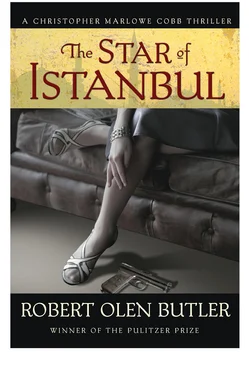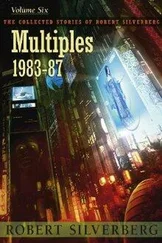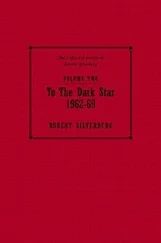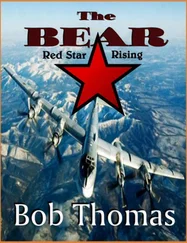“Right,” I said, shifting the pistol to my left hand and beginning to shake Smith’s hand good-bye.
“Don’t get me wrong,” Smith said, keeping the handshake going, “Mr. Metcalf is no dilettante. He knows his job. And he says you do too. Good luck out there.”
Metcalf’s declaration of my competence took me by surprise and I said nothing in return but finished the shake with Smith. As soon as our hands separated, he slipped past me and headed for the door.
But he stopped abruptly and turned back. “I almost forgot,” he said.
He dug something out of his inner coat pocket and handed it to me. “Telegram from your boys in Chicago.”
I took it with a thank you and he was gone.
I opened the cable and it was from Clyde Fetter, my editor in chief at the Post-Express . He wrote: Lusitania escape story a killer. Excuse the expression. Follow up solid. Loved the airships. Regular Joes on State Street and beyond agree. You are still the king of the king beat. Keep throwing strikes. Clyde
Which was a good thing.
Nevertheless I tried to give my attention right back to the Mauser. My skill with it seemed more important to me for the foreseeable future. I loaded its magazine and tucked it into the nightstand drawer.
But when I’d returned to bed and the room was dark, I didn’t fall asleep for a time. I found myself thinking hard about the Christopher Cobb that I still tried to believe was me, tried even to believe was the primary me: Christopher Cobb, the newsman. And so I thought of dessert this evening at the Carlton Hotel.
Metcalf and I had eaten songbird together and had spoken openly of my license to kill. There was nothing more to say except to speak of the food and to eat dishes built around foie gras and asparagus and sea oysters and on and on in voluptuous silence. But with the imminent arrival of dessert, Metcalf roused himself from the culinary trance he’d put us both in to praise Escoffier’s brilliant young assistant pastry cook.
He said, “You’d never know to look at him. A thin little wisp of an Indochinese man you’d expect to find pulling a jinrikisha somewhere out there in the French Far East. Or throwing a bomb for a gang of anarchists in the Balkans. But you’d be wrong. This guy is a native genius. The maestro plucked him off the cleaning brigade. He caught him routinely putting aside half-eaten food to give to the poor. But the maestro saw something in him and made him an offer: give up your ideas of revolution and learn to make pastry. Which he did. And his work is about to arrive.”
And it did, on a black plate. Pleine Lune Sur Indochine . In the center was a large, white glutinous globe. The full moon over Indochina. On its face was a drizzling of pomegranate juice. There was blood on this moon. Which was, in fact, a sticky-rice cake filled with fruit, both fresh and dried, and with nuts, but dominated by the flavors of mango and brandy and a citrusy flavor, but not a citrus I knew, as if the fruit grew in the ground instead of in the air. Lemongrass, Metcalf told me. And it was very good indeed, the handiwork of this apparent jinrikisha runner.
And I met him in Escoffier’s kitchen, where the Carlton’s once-a-week Gentleman Jim Metcalf and I were invited after dinner, and I was introduced to Georges Auguste Escoffier himself — a tiny man, dressed not like a chef but like a diplomat or a banker, in a frock coat and striped pants — and to the young genius of a pastry chef, who wore the traditional kitchen whites and a tall toque blanche and whose name — I finally heard it properly from his own lips — was Nguyê˜n Tâ´t Thành. I was introduced as Christopher Cobb, the famous American newspaper foreign correspondent. This made Mr. Thành’s eyes widen.
And at his first opportunity, while Escoffier and Metcalf ardently talked truffles, Mr. Thành drew me aside, beneath a hanging row of gleaming copper pots, where we quickly found a common language — an outsider’s passable French. He spoke to me rapidly, softly.
He said, “I was in your country three years ago. In New York City and then in Boston. I admire what your Declaration of Independence says, though I looked for its fruits in your streets and in your government. I’m sorry. I looked with very little success. But your press. Your newspapers. Your magazines. I have seen them speak openly about the evils of your society and about the evils abroad in the world. I urge you, Monsieur Cobb, to turn your skills of. . what is your English word? Muckraking. Please I implore you to turn your skills toward the evils of empire. Empire driven by business. This present war is about empire, and empire is about rich people getting richer, exploiting the people that they rule by imperial force. And please. .”
“Cobb.” This was Metcalf’s voice. “I want you to hear this.”
I kept my eyes on Thành. “Please,” he repeated. “Begin with the Vietnamese people.”
Metcalf said, “It’s what I was telling you about black and white.”
He was referring, I assumed, to truffles.
But I was having trouble drawing my eyes away from the unblinking eyes before me, eyes as black as the heavens surrounding a moon touched with blood.
Thành said, “You are a man who seeks the truth. You can give the news of this to the world.”
I turned away from him now, this Indochinese, this Vietnamese.
But in my hotel bed, on the night before Christopher Cobb, the American secret agent, was to put out to sea once more in pursuit of German secret agents, it was not so easy to let that little man go.
And it was, indeed, Christopher Cobb the newsman who boarded the SS Mecklenburg just before midnight. In his passport photo he had a close-cropped beard. In the flesh, he was clean shaven with a fresh bandage on his left cheek, but people do shave, and they do injure themselves, particularly escaping from a torpedoed ship. If you were to look inside his suit coat, you’d find the label of Eisner und Söhne, but Cobb was a famous, world-traveling American journalist and he could plausibly have gone to a German tailor in his travels. The Dutch were unlikely to take him into the woods and shoot him over a thing like that.
Cobb or not, I had to stay out of sight of the firm of Brauer und Bourgani. This was going to be an ongoing challenge all the way to Istanbul. In the Gladstone bag I had some spirit gum of my own and some items of facial disguise I’d purchased at a theatrical supply house in London on my writing day; I was going to have to be resourceful. And somewhere near the Belgian border, I was going to have to turn into someone else.
For that, I had choices in the valise. Choices and a wily surprise from Metcalf. When I’d risen this morning I’d opened Metcalf’s leather valise. First out, wrapped in a leather band, was a bundle of letters-of-passage and credentials, using photographs of me clean shaven, with my naked Schmiss . These would transform me into Jacob Wilhelm von Traube, with diplomatic passport and with alternate credentials making me either a press attaché or a military attaché, as it might suit the situation.
The next thing out of the valise was an American passport. It had a photograph of me in my close-cropped beard. But I was not Christopher Cobb. I was Walter Brauer. Metcalf without qualms. Metcalf advising. Not ordering, of course, this Gentleman Jim, but subtly advising a man with a certain knack to consider what might be good for his country.
Subtly until I found the hidden flaps on the edges of the lid to the false bottom. I lifted the lid away to expose the recess beneath.
And there lay a weapon the like of which I’d handled and learned to shoot in my training late last year.
Читать дальше












